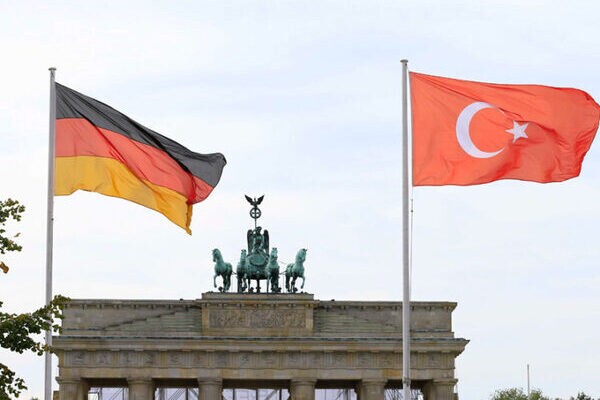There has been no letup in the aggressive, clandestine spying activities by Turkish agents on German territory that target critics and opponents of the government of President Recep Tayyip Erdoğan, according to a secret communiqué obtained by Nordic Monitor.
The communiqué reveals how Turkish spies operate in Germany under diplomatic cover and conduct illegal operations on foreign soil to collect information and pass it on to the foreign ministry in Ankara.
Dated February 11, 2022, the communiqué was signed by Erdoğan Kartal, deputy head of the counterterrorism department at the Security General Directorate (Emniyet), Turkey’s main law enforcement agency.
It mentioned recent intelligence transmitted by the foreign ministry, referred to only as Institution V to mask its origin, on February 8 to the Emniyet about a private meeting allegedly planned to be held by senior members of the Gülen movement, a group that is opposed to Erdoğan’s oppressive regime in Turkey.
The intelligence specifically mentioned Mustafa Yeşil, a leading critic of the Erdoğan government, as the target of the spying activity. Yeşil, a dual British-Turkish national, was president of the Journalists and Writers Foundation (GYV) until the Erdoğan government unlawfully shut it down in 2016 and seized its assets. He had to leave Turkey to avoid imprisonment on fabricated charges after an unprecedented crackdown on the free, independent and critical media in the country.
Yet the charges against and investigations into Yeşil continued to mount in absentia as the Erdoğan government escalated the crackdown and intensified the intimidation campaign against critics, including journalists and human rights defenders. Turkey filed a request for his extradition from the UK that was denied by a British judge.
Yeşil was supposed to travel to Germany for meeting and later fly to the US, according to the intelligence. The fact that the Turkish government managed to obtain the private itinerary of a major critic suggests its intelligence agency has an expansive network of spies and informants in diaspora communities, especially in Europe.
Kartal explained that the intelligence was obtained as part of intelligence gathering operations and that an information note was prepared based on it. He shared the information note with the Ankara Police Department.
In order to avoid a diplomatic backlash and problems at the bilateral level in the event the unlawful spying activities in Germany were revealed, Kartal warned that the information passed from the foreign ministry must be treated on a “need-to-know” basis and was “not to be shared with unauthorized people/institutions.”
The origin of the intel was the Foreign Ministry Security and Research Directorate (otherwise known as the intelligence section, or Araştırma ve Güvenlik İşleri Genel Müdürlüğü in Turkish), a secretive spy section of the Turkish Foreign Ministry.
Yeşil was known for involvement in interfaith dialogue activities, something President Erdoğan publicly opposed, saying dialogue between Islam and Christianity was not possible. The GYV under Yeşil organized a series of meetings that brought together leaders of the Syriac Catholic, Greek Orthodox and Armenian Orthodox churches.
The GYV under Yeşil had also organized workshops called the Abant Platform to address Turkey’s decades-long problems with Kurdish and Alevi issues, and brought together representatives of various communities and segments of Turkish society in an effort to bridge the gap. The reconciliation efforts presented a challenge to Erdoğan’s polarizing and divisive politics.
Like Yeşil, many Turks abroad from various opposition groups have been targeted with surveillance, harassment and threats of assassination by the Turkish intelligence service. Some were abducted by Turkish spy agency MIT from foreign countries in blatant violation of international law and the laws of the host countries.
In recent years German authorities have taken some actions to crack down on Turkey’s illegal spying activities, but the Erdoğan government apparently remains undeterred.
On November 10, 2022, the Düsseldorf Higher Regional Court’s State Security Division sentenced a 47-year-old German national of Turkish origin, identified as Aziz A., from North Rhine-Westphalia, to nine months in prison for spying on members of Gülen movement on behalf of the Turkish gendarmerie’s intelligence unit (Jandarma İstihbarat Başkanlığı). His handler was a Turk named Ali D., who had already been convicted of spying on July 14, 2022 and sentenced to almost two years by the same court.
According to court records, Aziz not only provided information about dissidents but also supplied Ali with ammunition. Aziz confessed to his crimes during his trial and provided a detailed account of his engagement with Turkish intelligence, which led to a suspended sentence.
Ali D. was arrested at a Düsseldorf hotel on Sept. 17, 2021 after an employee alerted the police to having seen a gun and ammunition in his room. Lists of the names of some Gülen movement followers and members of the outlawed Kurdistan Workers’ Party (PKK) were also seized in his hotel room that included additional information on each person, according to a Der Spiegel report at the time.
In 2015 Germany’s federal attorney general charged Muhammet Taha Gergerlioğlu, a close advisor of Erdoğan and a MIT operative, with espionage because he and two of his associates collected information on people of Turkish origin living in Germany who were critical of the Turkish government. Gergerlioğlu was later released as part of a political bargain between Turkey and Germany.
In 2017 an investigative report by the German police linked Ankara to a boxing gang in Germany accused of going after opponents of the Turkish government. According to the investigation former lawmaker and Erdoğan’s long-time friend Metin Külünk provided money to the gang, Osmanen Germania, to buy weapons, organize protests and target critics of the Erdoğan government, German media reported.
Police investigations also suggested Osmanen Germania had contact with the Cologne-based Union of International Democrats (UID, formerly UETD), an organization that functions as a foreign interest group on behalf of the Erdoğan government abroad.








